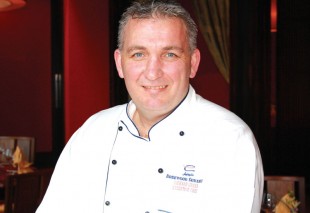

Healthy trend on the rise?

F&B suppliers are flagging up a growing trend for health foods, but has the focus on wellbeing struck a chord with the region’s consumers yet?
F&B suppliers may be flagging up the wellbeing trend with reports of increasing demand for healthy products from consumers and chefs — indeed it was the talk of Gulfood; but it seems this trend is taking its time revolutionising Middle East diets.
According to Rosewood Corniche executive chef Richard Green, the idea of healthy eating and dieting that has taken off in other parts of the globe has “not reached Saudi Arabia yet”.
“Consumers here have a sweet tooth and are the world’s biggest fans of chocolate, ice-cream and sweets,” he asserted.
Renaissance Dubai Hotel director of F&B Andreas Kurfürst added that although requests for healthier options were picking up in the UAE, healthy diets had been slow to get off the ground.
“I worked as a pastry chef for 12 years in Dubai, and only had one request for a sugar-free cake,” he revealed. “Traditionally, where money has been readily available, people seemed to feel they could eat what they wanted then just pay a doctor to fix the health problems later.
“But recently, although people still eat a lot of sweets and desserts, they are substituting regular items, such as dairy products and soft drinks, with low-fat or low-sugar options,” he explained.
At The Address Dubai Marina, executive assistant manager — F&B Stefan Viard agreed consumers were becoming more concerned with their diet.
“They are more aware of the need for a balanced meal now,” he asserted.
“When placing an order, guests today increasingly want to know where the product originates and whether it is organic or not.”
Burgeoning consumer knowledge about food is driving this change, according to general manager of Al Diar Siji Hotel and Siji Hotel Apartments, Fujairah, Fouad Melhem. “People are becoming food and health savvy; we have noticed that guests are requesting more vegetarian meals and low-fat, low-calorie options,” he explained.
So what steps are the region’s F&B outlets taking to accommodate — or even encourage — the movement towards a healthier lifestyle?
Melhem said the increased demand had led to healthier menu options, but admitted it had been a challenge for chefs to devise lighter dishes that also tasted good and weren’t too expensive.
Similarly, Renaissance properties worldwide have implemented an ‘Eat, Drink, Balance’ programme in all its menus — but Kurfürst noted that “as sales go, these are not yet top sellers in this region”.
Meanwhile Rosewood’s Green explained: “In Saudi Arabia, the taste matters more to our guests than the degree of ‘healthiness’ or number of calories in a dish.”
This is what it comes down to, notes The Address’ Viard: “Listening to your guests and following the latest trends is vital in today’s competitive market.
“If we see a tendency for healthier food options then we will definitely make sure that we cater for this on our menus,” he said.
By the same token, if demand is slow, healthy menus will most probably fade away as well.
But if the region’s chefs and suppliers can continue to innovate with new products and menus, attracting the consumer with healthier options, the wellbeing trend could take off in the Middle East as it has done in other parts of the world.